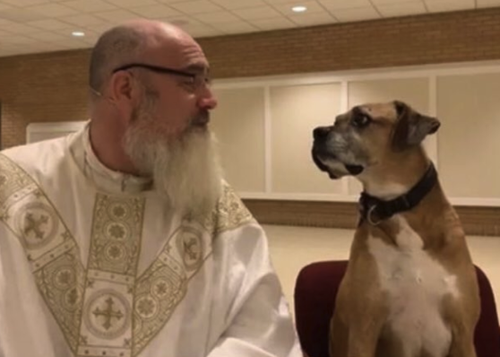With its digital homage to the late Paul Harvey's "So God Made a Farmer" soliloquy, the "God Made Trump" video drew roars of support at key Iowa rallies for Donald Trump.
"And on June 14, 1946, God looked down on his planned paradise and said, 'I need a caretaker,' so God gave us Trump," said the majestic voice. The former president was God's choice to "fix this country," "fight the Marxists" and, yes, "Make America Great Again."
The script added that Trump, a mainline Presbyterian with a tabloid-worthy personal life, would "follow the path and remain strong in faith and know the belief of God and country." He would "finish a hard week's work by attending church on Sunday. … So, God made Trump."
On a first take, this "eerily messianic" video seemed like satire, noted Guthrie Graves-Fitzsimmons, author of "Just Faith: Reclaiming Progressive Christianity." After all, Trump never joined a Washington, D.C., church and was rarely seen attending worship.
"What's missing from the video is some key theological context: God made everyone," he wrote, at MSNBC.com. "God made every political opponent, journalist, American who died in war, and former presidential aide whom Trump has disparaged. God made the Christian supporters of Trump he mocked behind their backs."
This furor was political catnip for the Dilley Meme Team, the creators of this social-media grenade, especially the blitz of retweets by furious Trump critics.
Self-help author Brenden Dilley stressed that "God Made Trump" was rally material for a logical reason: "Because President Trump absolutely loves the meme. He thinks it's powerful, he thinks it's a great message. … That was repeated to me three different times. He loves the meme. He thinks it's cool."
Responding to Fox News comments during a "Dilley Show" podcast, he added: "It's not satire. … It's just art. ... This is how a MAGA-patriot, voters, creators, artistic people who love President Trump, this is how they feel about him, and this is what they created for him. How is this complicated?"










